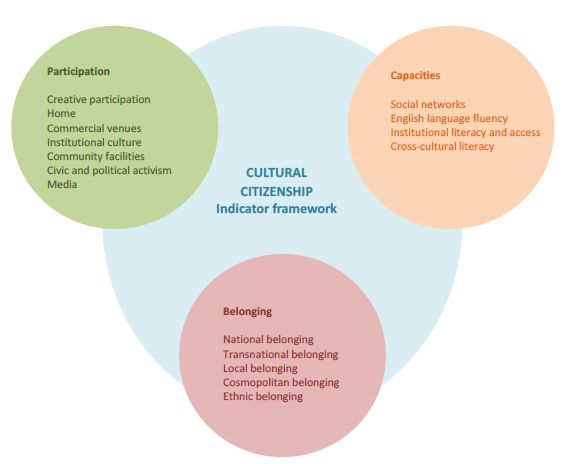Cultural Citizenship Indicator Framework
This indicator framework presents a conceptual model of cultural citizenship.
While citizenship is defined as the formal, legal frameworks that underpin belonging to a nation, cultural citizenship refers to the informal, cultural dimensions that facilitate belonging and enable one to contribute to, and shape, the dominant culture.
These informal dimensions of citizenship can include participation in the workforce, experiences of inclusion or exclusion, the ability to take part in a range of cultural activities, or having access to knowledge or resources that makes one an active and equal member of the community.
In this model, cultural citizenship is made up of three key components - cultural participation, capacity and belonging.
Because it is not defined by formal belonging to a nation state, cultural citizenship also means one can have attachments to the nation, at the same time as they have connections to local communities, subcultures or transnational diasporas. Read moreCultural Citizenship Indicator Framework diagram:

